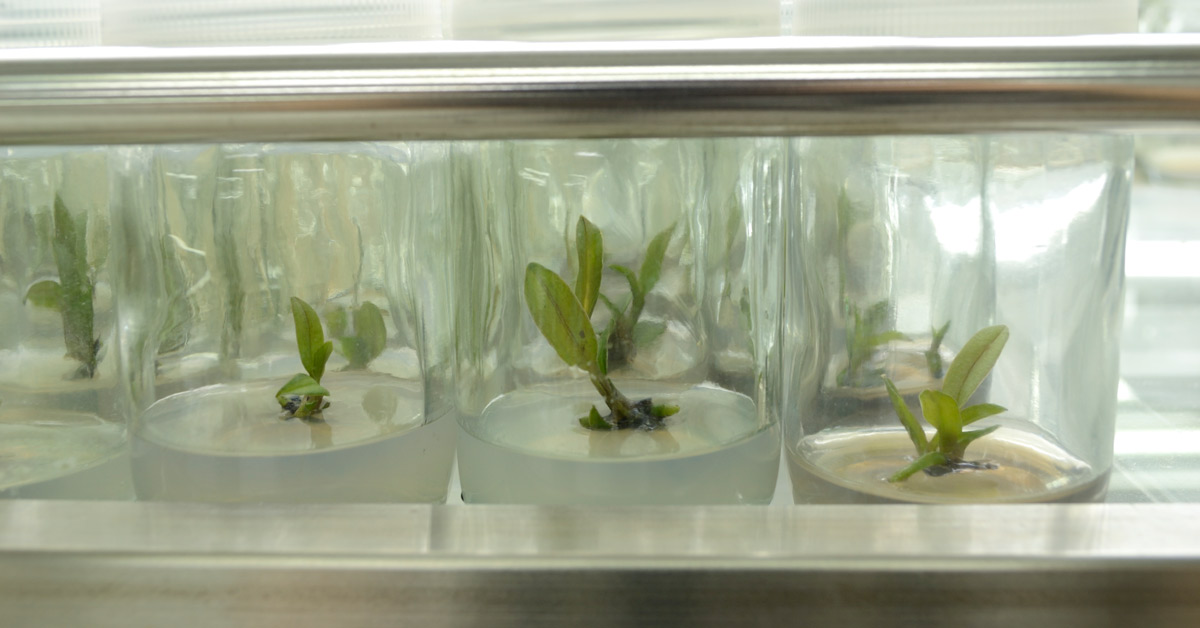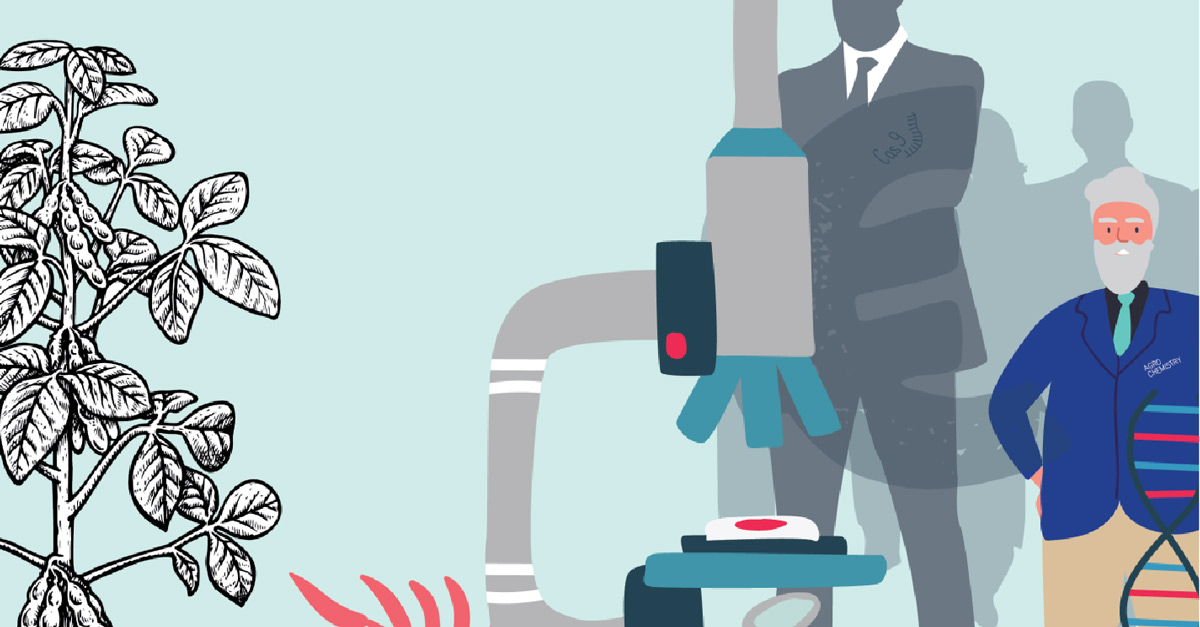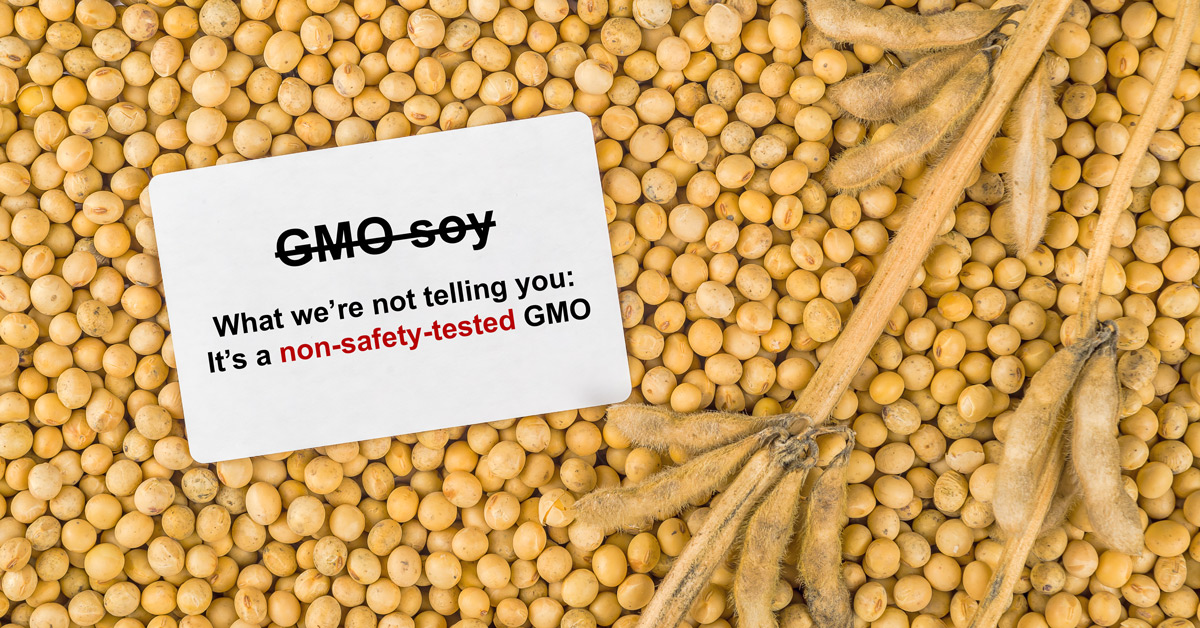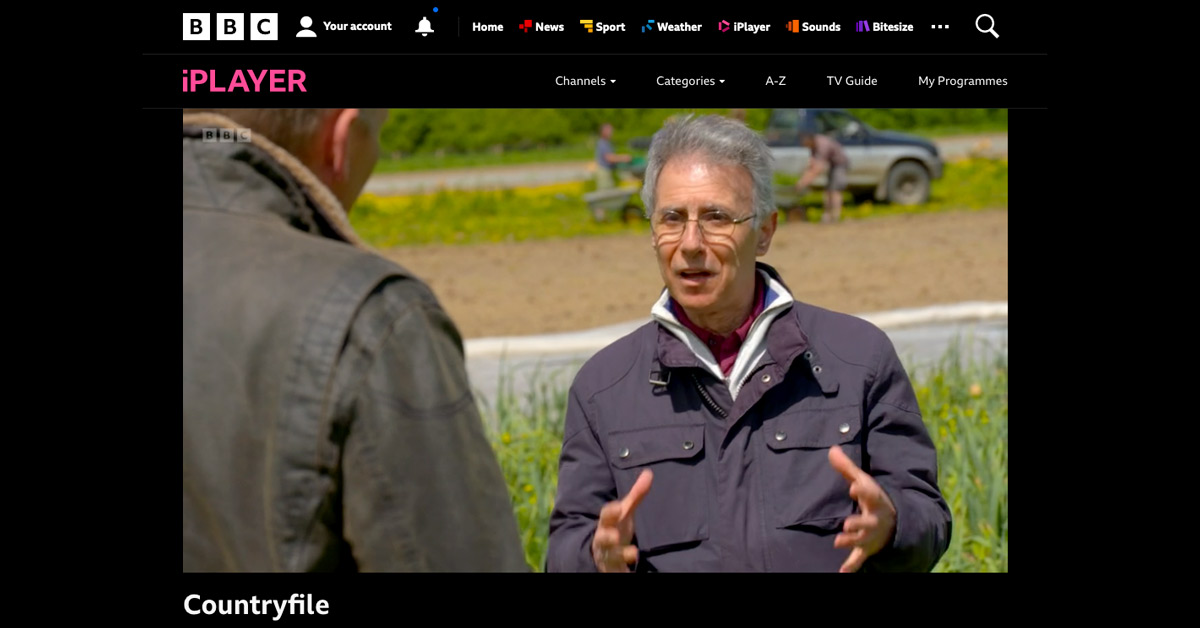Welcome to our latest Review, which focuses on new GMOs and the UK's GMO deregulation bill.
NEW GMOs
Seven EU environment ministers challenge Commission's upcoming proposal to deregulate new GMOs
At a meeting of the EU Environment Council, seven ministers disputed Health Commissioner Stella Kyriakides' upcoming proposal to exclude a new generation of untested new GMOs, or so-called "new genomic techniques" (NGT), from the current GMO legislation. The debate on the proposal was initiated by the Austrian environment minister, who raised strong concerns about the approach taken by the European Commission and the potential harmful impacts of deregulation on nature. Mute Schimpf of Friends of the Earth Europe said: "Environment ministers have more than enough reasons to reject the Commission’s plans for new GMOs and to put its risky gamble in the spotlight. The deregulation of new GMOs could have far-reaching impacts on nature, so why throw away 20 years of essential safety regulations? We ask the Commission to listen to the ministers’ concerns and to the +400,000 EU citizens who have asked to keep their right to choose what they eat and grow."
Austrian and German ministers want stringent regulation of new GMOs
In the runup to the meeting of the EU Environment Council (see above), Austrian environment minister Leonore Gewessler, supported by Cyprus and Hungary, circulated a press release arguing that new GM crops should be subjected to stringent environmental and health safety checks and that "vague assumptions" of new GMOs' supposed potential to improve sustainability is not a suitable basis for legislation. A German minister is also taking a strong stand in favour of strict regulation of new GM products. Germany's deputy food and agriculture minister Silvia Bender said, "There have been calls for NGT [new genomic techniques, new GM techniques] organisms to be deregulated. I believe that this conclusion is too shortsighted and it doesn't comply with my understanding of transparency."
Austria wants food labelling transparency for new GMOs
The European Commission must implement a safety assessment of new GM products and maintain mandatory labelling, Austrian Climate Minister Leonore Gewessler and Consumer Protection Minister Johannes Rauch said in a letter to EU Health and Food Safety Commissioner Stella Kyriakides. The letter says the EU should stick to existing rules to protect consumers and the environment and that Austria’s "long tradition of organic farming and strict rules to protect it from genetic engineering" – an "achievement ", according to Gewessler – "must not be jeopardised by EU legislation on new genomic techniques, which is being developed by the Commission merely on the basis of vague assumptions."
German agri ministry opposes gene editing deregulation
The German agriculture ministry's move against deregulating new genomic techniques (NGTs) could tip the scale on the matter within the Berlin government, in a departure from its previous non-committal stance. Germany could be a key player in determining how the Commission's plan to deregulate new GMOs will go down with member states. The country’s Greens-led agriculture ministry has now put its cards on the table and come out against deregulating NGTs after minister Cem Özdemir had previously refused to take a stance on the matter. Green environment minister Steffi Lemke is also against deregulation.
German youth associations demand protection of GMO-free food production
German youth organisations have published a strong resolution on the topic of new genetic engineering from the perspective of young people who would like to make – or have started to make – a livelihood in the food sector. The resolution opposes the EU Commission's plan to deregulate new genetic engineering techniques and demands the continued freedom to produce organic and non-GMO foods. The youth organisations want thorough risk assessment for new GMOs, traceability, labelling that includes the final product, and the ability to protect the food chain from GMO contamination. Their call counters narratives by pro-GMO lobbyists that younger people are more accepting of new GM technologies and products.
EU Commission sent back to the drawing board on GMO deregulation plans
According to a reliable media report, the EU Commission's DG SANTE said on 31 March that the files on new GM techniques ("new genomic techniques" or NGTs) and plant reproductive material will no longer be tabled on 7 June, as previously planned. The revised plan is for both dossiers to be adopted by the Commission's College at the end of June (date to be confirmed). The report says the Impact Assessment accompanying the EU’s legislation for plants derived from certain new GM techniques "did not go well" at the Regulatory Scrutiny Board last month. Sources say the analysis did not sufficiently assess the impact on consumer trust, the organic sector, environment, or health, while it failed to present an overview of the costs and benefits. Under EU rules, a "positive" or "positive with reservations" opinion is needed from the Board for an initiative accompanied by an Impact Assessment to be tabled for adoption by the Commission. In the case of a negative opinion such as this one, the draft report must be reviewed and resubmitted to the Board before it can proceed. (No link in header above)
How Big Agribusiness ghostwrote the EU Commission's proposal on new GMOs
As Europe's environment ministers discuss the upcoming legislation on the deregulation of the new generation of genetically modified organisms (new GMOs, so-called "new genomic techniques" or NGTs), a new investigation by Friends of the Earth Europe reveals the extent of the European Commission's proposal's capture by the seed industry. An analysis of the Commission’s consultation for the public and governments, a central step of the new legislation, shows that it closely follows agribusiness's deregulation agenda and especially borrows claims made by Euroseeds, the European seed companies’ lobby group.
Known and authorised new GMOs can be detected, conference confirms
It's often claimed that new GMOs shouldn't be regulated or labelled because they can't be differentiated from natural products. But a conference on the detection of new GMOs, including gene-edited ones, confirmed that if GMO developers provide regulators with the whole genetic sequence, good quality reference samples of the GMO and non-GMO comparators, and a validated detection method, there is no problem in detecting known and authorised new GMOs. That includes new GMOs with small gene edits, such as single nucleotide variations. Unknown/unauthorised GMOs can't yet be detected as there is no prior knowledge of the genetic sequence. However, some scientists think that such unknown GMOs might be detectable in future. Meanwhile there are alternative means of tracing new GMOs through the food and feed chain, such as blockchain, just as there are with organic products, for instance. GMWatch attended the conference and has summarised the findings.
Organic farming organisations: No free pass for genetic engineering industry!
The organic farming associations Bioland and Demeter have warned of the consequences of deregulating new genetic engineering in EU GMO law. The EU Commission intends to present a legislative proposal on "new genomic techniques" (NGTs or new GMOs) in 2023, which will allow the marketing and deliberate release into the environment of plants created using new genetic engineering without comprehensive precautionary measures. This is not only a problem for organic farmers. At stake is whether GMO-free cultivation will be possible at all in the future. In order to ensure the coexistence of different cultivation methods and freedom of choice for consumers, binding regulations are still needed, say Bioland and Demeter.
Plant breeders' associations and seed companies claim to oppose patents on new GMOs – but there's a catch
The German Plant Breeders' Association, BDP, has moved to officially oppose patents on certain new GMOs that, it argues, could occur naturally. The BDP says, "The patentability of biological material, which also occurs or could arise in nature, must not be possible, regardless of how it is produced." The BDP also wants to allow seed breeders to be able to use patented material for breeding purposes: "The possibility of using patented material for breeding purposes, as provided for, for example, in German and French patent law, must be introduced throughout Europe." The Dutch and Austrian plant breeders' associations take similar positions to the BDP. The BDP includes among its members major GMO patent owners such as Corteva, Bayer, BASF, Syngenta, Limagrain, and KWS. So what's going on? Why would companies whose business model depends on patenting GMOs claim to oppose patents on certain new GMOs? GMWatch explains how their proposed alternative system could actually intensify corporate control of seed.
New GM – risk scales up as efficiency increases (video)
As new GM techniques speed up, the efficiency of production increases, which inevitably increases outputs into the environment and thereby risk, says Prof Jack Heinemann, who is interviewed about risk management and policy by Jodie Bruning of Physicians & Scientists for Global Responsibility (PSGR).
New GM techniques won't reduce pesticide use in the EU
EU Commission officials have stated that new GM techniques have the potential to reduce pesticide use. But a new report by Foodwatch shows evidence to the contrary. Foodwatch has analysed existing scientific literature on disease-resistant new GM crops and found that not a single trait near commercialisation has the potential to reduce pesticide use. And contrary to what the industry has been promising for decades, older-style GM crops have never led to a reduction of pesticide use on national scale. In the USA, Brazil and Argentina – where GM crops are widely grown – pesticide use is higher than ever.
Cutting into plant DNA only compounds problems
The CRISPR/Cas gene editing technique is not a panacea to make plants stronger. On the contrary, it will do great damage, warn Volkert Engelsman, entrepreneur and founder of organic and fair trade produce supplier Eosta, and Michel Haring, professor of plant physiology at the University of Amsterdam (UvA), in an excellent article in the mainstream Dutch newspaper Trouw. Engelsman and Haring describe the technique as "biotech neocolonialism" and point out that it won't fulfil the promises made for it, which require systemic solutions. GMWatch has published an English-language version of Engelsman and Haring's article.
Scientist group ENSSER warns of risks of CRISPR/Cas in agriculture and horticulture
The European Network of Scientists for Social and Environmental Responsibility (ENSSER) has published a position statement on the CRISPR/Cas gene editing technique in agriculture and horticulture. The 9-page statement says, "CRISPR/Cas is simply a method of targeting a genetic modification... to a predetermined location in the genome.... there is no evidence that crops and livestock animals developed using CRISPR/Cas and other gene editing techniques will fulfil the promises being made for them. On the contrary, they pose risks that must be acknowledged, studied, and controlled through robust regulation." The statement was sent to the Agriculture Commission of the Dutch Parliament, which held a Round Table on CRISPR/Cas on 31 January 2023.
Gene editing is the wrong term – armed drone attack is more accurate
In his book, The Mutant Project: Inside the Global Race to Genetically Modify Humans, about how CRISPR was used to "edit" babies, the scholar Eben Kirksey explains how metaphors like gene editing, which suggest precision, actually hide messy cellular dynamics. Kirksey says an armed drone attack gives a more accurate comparison. He writes, "Scientists often accidentally blast away big chunks of DNA as they try to improve the code of life. CRISPR can also go astray when preprogrammed coordinates are ambiguous, like a rogue drone that automatically strikes the friends, neighbours and relatives of suspected terrorists." In fact, most people do not realise that CRISPR, for instance, "can persist in cells for weeks, bouncing around the chromosomes, producing damage to DNA over and over again every time it finds a near match to the intended target".
Non-safety-tested gene-edited soybean approved by Brazil's GMO regulator
Brazil's National Technical Commission for Biosafety (CTNBio) has decided that a CRISPR gene-edited soybean, developed by Embrapa for drought tolerance, is non-GMO – thereby exempting it from the GMO regulations and meaning it will not carry a GMO label. "By considering this soybean as non-GMO, the research processes are less bureaucratic and therefore we were able to reduce the time and costs for drought-tolerant cultivars to reach the market, with guaranteed biosafety," said Alexandre Nepomuceno, general head of Embrapa Soja, and researcher Liliane Henning. "Furthermore, there will be no need for us to conduct the complex process of commercial deregulation of a GMO product, which is time-consuming and costly," they said. The deregulation of the GM soy means that no safety testing will have been performed on it, meaning it could contain novel toxins or allergens.
UK GMO DEREGULATION
UK Gene Technology Bill passes into law: BBC science correspondent gets it wrong
The UK's Gene Technology Bill, which removes regulatory safeguards from a whole subclass of GMOs, has passed into law with the royal assent of the King. BBC science correspondent and longtime pro-GMO enthusiast Pallab Ghosh got the story wrong, claiming that "Commercial development of gene-edited food [is] now legal in England" and "Gene-edited food can now be developed commercially in England following a change in the law". In reality, this was possible before. What's new is that the regulatory safeguards have now been removed by the UK government, creating a lawless "Wild West" for GMO developers. In the EU and pre-Brexit UK, the only things that have impeded GM crop "development" are the inherent limitations of GM technology, the fact that EU Member States see no benefit in GMOs, and the fact that almost no one wants to buy or use them.
Toxins and allergens in the food chain
Ghosh's article (see above) quotes Pat Thomas of Beyond GM as saying that she is "concerned that gene-edited crops will not have to go through the extensive testing required of GM foods in the EU, which may result in the introduction of toxins and allergens into the food chain". She said, "The entire process of this bill has been of the government consulting scientists with vested interests, usually in the biotech industry, who are reassuring the government that this change in the law will have no consequences. History has shown that when you remove regulatory control, particularly for food and the environment, there is looming disaster on the horizon." Here are Beyond GM's further comments on the bill.
Gene-edited crops: The threat to health
In May 2022 molecular geneticist Dr Michael Antoniou was interviewed about the UK government's deregulation of gene-edited GM crops and animals by Tom Heap on BBC's Countryfile. We've published a transcript of Dr Antoniou's interview. The crux of the issue, which all policymakers and regulatory agencies need to bear in mind, is Dr Antoniou's statement: "Gene editing tools... invariably produce unintended DNA damage. If that happens, you end up changing the biochemistry and composition of the crop. And that could include the production of novel toxins and allergens. This is why we've got to keep strict regulation of these products." Dr Antoniou isn't the only scientist who has raised this concern.
UK consumers want safety testing, risk assessment, and labelling of new GMOs
The UK Food Standards Agency (FSA) has published a paper on the Genetic Technology (Precision Breeding) Bill, which reports the results of its consumer research on gene editing. The level of consumer awareness of the technology was low, not helped by the fact that gene editing and other GM technologies were described as "precision breeding", a phrase that the UK government invented to hide the fact that the products of these technologies are in fact GMOs. Consumers thought benefits outweighed risks if the technology was properly regulated, but "were very clear in their desire for thorough safety testing of all new precision bred products. They wanted to know that risk assessments would have high standards and require strong evidence". They also "very strongly" wanted labelling (they don't seem to have been given the choice to demand a "GM" label but were restricted to demanding a "precision bred" label): "They argued that being able to identify precision bred products via labelling is critical for transparency, and therefore to consumer choice and public trust. Survey respondents agreed, with nearly four in five (77%) saying it would be important when buying a food item to know if it had been precision bred, and nearly half (45%) saying it would be 'very' important. Only one in six (15%) say knowing this would not be important."
Gene edited foods in our shops soon? Reality vs hype
As the UK's Genetic Technology Bill made its final pass in the Commons, MPs promised abundant fields and supermarket shelves groaning with genetically improved foods. The most recent House of Commons research briefing says: "Examples of current GE [gene-edited] products include soybean oil with reduced saturated fat sold in the USA and a tomato sold in Japan that accumulates a chemical that lowers blood pressure. For the future, a range of wheat, chickpea, and peanut products with health benefits are in development, alongside products aimed at consumer convenience such as seedless fruits and corn that is higher in thickening starch. " The official narrative around the bill promotes gene editing as both a food security imperative – to protect the UK from immediate shortages due to the war in Ukraine – and a near mythical Brexit benefit: "the first step in securing our future food security as a nation". However, no such crops exist or are anywhere near being commercialised, an analysis by Pat Thomas shows.
Pets could be gene-edited under new English law, says RSPCA
Pets could be subjected to gene editing under the new UK government's bill, the RSPCA has warned. The largest animal charity in the UK pointed out that the bill applies to all vertebrate animals, not only farmed animals, and that it could lead to cats and dogs being gene-edited to include extreme features. David Bowles, the head of campaigns and public affairs at the RSPCA, criticised what he described as an "ill-judged policy ". He said the charity had tried to get the government to include an exemption for pets, but was "sadly ignored ". He added: "Gene editing could be a huge step backwards for animals. We do not believe this act should include animals, whether they are farm, pet or wildlife. Invasive procedures are needed to create each line of gene-edited mammals, there is no history of use for this powerful technology, and it can cause unintended changes to the genome, with unpredictable effects. The RSPCA has serious animal welfare and ethical concerns about this."
Free webinar: Opening the door to gene editing in the UK: Farm animals, pets and wild nature – 10 May 2023
The UK bill's removal of basic regulatory controls such as environmental, health and safety assessments, labelling, traceability and ongoing monitoring would be controversial enough on its own. But what many don't know – because it has not been widely reported or discussed – is that the scope of the bill extends far beyond the usual handful of commodity crops found on the farm into a wide range of animals, including farmed animals (both land-based and in aquaculture) and pets, as well as to animals and plants found in wider nature. This is a sea change in the UK’s approach to the potential uses of genetic engineering. This webinar is an opportunity to explore aspects of this new UK legislation from the perspectives of ethics, welfare and environmental impact.
NFU claims credit for passage of UK GMO deregulation law
The UK's National Farmers' Union (NFU) has claimed credit for the passage of the UK bill. GMWatch comments that now we know who to blame! Seriously, though, the UK government required no assistance in driving through this dangerous bill. But the NFU's outrageous claim is in line with its reputation for being "not really national, not really farmers, and not really a union", but for being, in effect, an agribusiness lobby group.
UK bill: What next?
Just because the appalling and scientifically bereft bill has passed into law, that doesn't mean it's the end of the fight. GMWatch, alongside other concerned groups, will continue to meet with the UK Food Standards Agency (FSA), where we will push for the best possible safety tests, risk assessments, and GMO labelling. After all, the FSA's own research shows that's what most citizens want. We will also watch out for the Statutory Instruments, when they arrive, which are intended to fill in much of the substance of how the bill will work, and continue our attempts to inform policymakers about the implications of these legal documents.
UK Action: Oppose plans to grow GM plants with human genes
Rothamsted Research has applied for permission to plant millions of experimental GM camelina plants on their farms in Hertfordshire and Suffolk. Please let Defra know by 17 April that you do not want this trial to go ahead. The camelina plants will include synthetic copies of human, cattle, mouse and goat genes. The risks and ethical issues this raises aren’t properly considered in the application and for many people it simply crosses a line. The application doesn’t actually say what will be planted. Instead it lists over 130 different genes that will be combined as the genetic engineers see fit over the next five years. Different genes interact with each other in often unexpected ways, so no GM field trial should be considered until it is clear exactly how the plants involved have been changed.
..................................................................
We hope you’ve enjoyed this newsletter, which is made possible by readers’ donations. Please support our work with a one-off or regular donation. Thank you!















